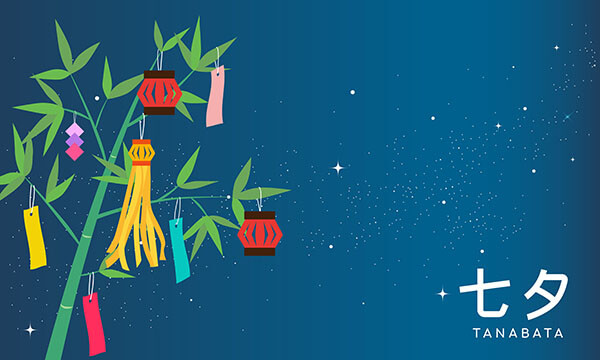What Is the Japanese Word for Hope
Despite seeming a little puzzling at first glance, there are actually a handful of ways to say "hope" in Japanese. There are two words often used to refer to "hope", and there are even more ways to express it.
These two words for hope in Japanese are 希望 (kibou) and 望み (nozomi) respectively. Both of them are nouns and are used when referring to a hope that exists.
At other times we may want to express our hope towards something. This could be when we're feeling hopeful or when we're wishing for something. Whether we're wishing for something, or praying that something will pan out a certain way, in English, we use the word "hope" in all of these scenarios.
However, in Japanese, there are a number of expressions and phrases that we can use to express our hope. Which expression you will need depends on which kind of situation you're in.
In this ultimate guide, I explore all the ways to say "hope" in Japanese. Let's take a look at the meanings and kanji of 希望 (kibou) and 望み (nozomi)! Additionally, let's talk about expressions you can use to say things like "I hope that…", "hopefully", or "I hope you feel better" in Japanese.
I have tailored this guide for beginners and intermediate learners of Japanese alike, so hopefully, you can find what you're looking for!
Hope in Japanese
- Hope.
希望。
kibou.
If you were to search "hope" in a Japanese dictionary, 希望 (kibou) will always be the first entry. 希望 (kibou) is a noun – it is the best translation of "hope" in Japanese. Depending on the context, it can also overlap with nuances of wishing, or of an ambition/desire of something.
It is composed of two kanji, 希 and 望.
The first kanji, 希, means "hope" in Japanese. It is associated with scarcity, and is used in other words such as 希薄 (kihaku), meaning "thin, lacking, insufficient" and 希少 (kishou), meaning "rare".
The second kanji, 望, means "hope" or "ambition" in Japanese. This kanji appears in words that express "wish", or "desire".
These two similar kanji in succession form 希望 (kibou), a word we can understand as quite literally "hope" in Japanese.
How To Use 希望 (kibou)
Quite often, 希望 (kibou) is used as a negative in neutral language.
- 私たちは生きているかぎりまだ希望がある。
watashi tachi ha ikiteiru kagiri mada kibou ga aru.
As long as we're living, there is still hope.
In the same way, it can also be used to express a wish.
- 彼らが私の希望に反対している。
karera ga watashi no kibou ni hantai shiteiru.
They're going against my wishes.
In the first example, the final part "there is still hope" conveys a little positivity. However, the meaning of the sentence as a whole still has nuances of uncertainty lingering around it. In the second example, although the speaker has not explicitly stated that they are unhappy with the situation, it is still felt and understood by the listener that the speaker is probably not exactly overjoyed.
You could use it to convey complete despair:
- 希望がない。
kibou ga nai.
There is no hope.
In terms of neutral nuances, 希望 (kibou) can be used in Japanese Keigo to express a desire, want or preference.
- ご希望の時間をお知らせください。
go kibou no jikan o wo shirasekudasai.
Please let us know your desired/preferred time.
In formal Japanese, 希望 (kibou) is used to express a want/desire instead of the grammar たい (tai) or 欲しい (hoshii).
Hope/Wish in Japanese

- Hope/Wish.
望み。
nozomi.
Like 希望 (kibou), 望み (nozomi) is a noun that also means "hope" or "wish" in Japanese. When translating 望み (nozomi) into English, it comes out as "hope", and it may appear that it can be used interchangeably with 希望 (kibou).
The kanji for 望み is the same one as the second kanji in 希望 (kibou) too. So from that, we can deduce it also has similar nuances.
There are some differences between 希望 (kibou) and 望み (nozomi) though. They are used differently depending on the context.
So, we know that they can both be used to express "hope". Like we discussed above, 希望 (kibou) is most frequently used as a negative in neutral language. It sounds like a firm statement, an educated one, that can sometimes appear harsh.
On the other hand, 望み (nozomi) sounds much more emotional, intimate and positive. When someone says:
- 私の望みは留学生として日本に行くことだ。
watashi no nozomi ha ryuugakusei toshite nihon ni iku koto da.
It's my wish/hope to go to Japan as an exchange student.
We can really feel the emotion in the speaker's words with 望み (nozomi). Unlike 希望 (kibou), when someone uses 望み (nozomi) we can really establish a deeper connection with their feelings and wishes. It feels considerably more intimate. Another example:
- 彼女の望みは声優になることだ。
kanojo no nozomi ha seiyuu ni naru koto da.
It's her ambition to become a voice actress.
望み (nozomi) is exceptionally powerful at conveying someone's ambition towards something.
Hope As a Name in Japanese
Just like how Hope is a person's name in English, there is also an equivalent in Japanese!
The name for Hope in Japanese is 望み (nozomi). It is a unisex given name and is often spelt with the kanji for hope as seen here, but there are other variations also.
Furthermore 望み (nozomi) is also the name given to Japan's fastest bullet train, called the Nozomi Shinkansen. It operates at speeds of 185mph (300km/h), with a full trip from Tokyo to Osaka taking a mere 146 minutes. This is crazy compared to the 6 hours + time it would take to make the same journey by car.
I Hope It Goes Well in Japanese
- I hope it goes well.
XXますように。
XXmasu you ni.
When you want to express your wish or hope that something will pan out a certain way, you can use XXますように (XXmasuyouni).
Replace the XX with a ます (masu) form verb to express your hope towards something.
For instance, perhaps you're really hoping that something will go well. You can say:
- すべてはうまくいきますように 。
subete ha umakuikimasu you ni.
I hope everything will go smoothly.
The catch with this expression is that it's not widely said to express your hope about something to other people. You can use it, but it would sound really strong.
Instead, XXますように (XXmasuyouni) is most commonly used when visiting and praying at temples in Japan. Visiting temples to pray in Japan is a popular cultural practice that is often done particularly during times of importance.
It could be that you're about to take an exam you've been dreading for so long, and you really hope you pass. Or it could be that you/or a family member is about to undergo surgery, and you want to pray – hope that it'll go well.
- 試験に合格しますように 。
shiken ni goukaku shimasu you ni.
I hope I can pass the exam.
Tanabata Festival – Expressing a Wish

Every year on July 7th there is a national event called the Tanabata festival. This Japanese festival is celebrated by writing down your wish or hope onto a coloured paper called Tanzaku.
The Tanzaku is then tied to bamboo with string along with other peoples wish. When writing down your wish on the Tanzaku, you can use XXますように (XXmasuyouni). You'll find that lots of other people will use this format to express their wishes and hopes regarding something that's important to them.
- 幸せになれますように 。
shiawase ni naremasu you ni.
I hope I can be happy.
Good Luck in Japanese
Sometimes when we want to wish that something will go well for someone, we also want to send them good luck.
To view all the ways you can wish someone "good luck" in Japanese, have a look at this ultimate guide that details how to do so!
I hope That… in Japanese
- I hope that…
…といい (な・ね)。
…to ii (na/ ne).
The perhaps best way to express "hope" in Japanese is through the …といい (to ii) expression. といい (to ii) is the most natural way to say "I hope that…" in Japanese. Let's take a look at an example. Perhaps you've been really busy recently, you might think:
- 今夜やっとリラックスができるといいな 。
konnya yatto rirrakusu ga dekiru to ii na.
I hope that I can finally relax tonight.
When you use といい (to ii), the preceding word has to be a verb that's in plain form. It can't be a verb in the ます (masu) form. For instance, say you're hoping that it won't' rain tomorrow:
- 明日雨が降らないといいな 。
ashita ame ga furanai to ii na.
I hope that it won't rain tomorrow.
The verb can be negative or affirmative, as in the case here with 降らない (furanai).
Understanding と (to) and いい (ii).
と (to) is one of the four ways to say "if" in Japanese. It is the conditional way to say "if" meaning that the result of the condition is definite. Put simply, when と (to) is used, it's saying that if Y happens, X will absolutely, definitely happen as a consequence. As an example:
- いっぱい食べると太るよ。
ippai taberu to futoru yo.
You'll get fat if you eat a lot.
With this in mind, let's go back to our previous example.
- 明日雨が降らないといいな 。
ashita ame ga furanai to ii na.
I hope that it won't rain tomorrow.
We can understand that this と (to) means a definitive "if".
And if we know that いい (ii) means "good" in Japanese, we can understand that this expression is another way to say "It would be good if…" in Japanese. As a complete phrase, "It would be good if it didn't rain tomorrow".
といい な (to ii na) VS といいね (to ii ne)

You can use といい (to ii) to express your hope that something will pan a certain way. To finish up the expression, you need to attach one of two endings, な (na) or ね (ne).
When you say といいな (to ii na) you're directing the hope to benefit yourself. Whereas when you say といいね (to ii ne) you're instead sending your hope to another person.
For instance, if you were to say the following phrase with な (na), it'll read like this.
- 今夜よく寝られる といいな 。
konya yoku nerareru to ii na .
I hope that I can sleep well.
On the other hand, if ね (ne) is used instead…
- 今夜よく寝られる といいね 。
konya yoku nerareru to ii ne .
I hope that you can sleep well.
With ね (ne) you're expressing your hope for the benefit of someone else.
I Hope So… in Japanese
- I hope so.
そうだといいな。
sou da to ii na.
When someone expresses their hope that something pans out in your favour, you can respond in agreement with そうだといいな (sou da to ii na).
Let's say you've been really looking forward to playing that new Zelda game, but you've recently been super busy with no time at all! The weekend finally arrives and your friend says to you:
- 今週末ゼルダをやる時間があるといいね!
konnshuumatsu zeruda wo yaru jikan ga aru to ii ne!
I hope you have time to play Zelda this weekend!
Not being too optimistic, you respond;
- そうだといいな!
sou da to ii na!
I hope so!
In the そうだといいな (sou da to ii na) expression, the といいな (to ii na) element returns (explained above), only this time it's attached to the end of そうだ (souda).
そうだ (souda) means "that is so" in Japanese. Now that we understand the functions of といいな (to ii na), we can understand the literal meaning of this phrase as "that would be good if that is so".
I Hope You Feel Better

- I hope you feel better.
お大事に。
odaijini.
When someone is sick or unwell, it's natural to want to wish them a speedy recovery. There are two main ways we can say to someone "I hope you feel better" in Japanese.
The first is by using といい (to ii), explained above, to say it directly.
- 早くよくなるといいね!
hayaku yoku naru to ii ne!
I hope you can get well soon!
The second way to wish someone to get well soon is to use お大事に (odaiji ni). By using お大事に (odaiji ni), you express your hope that someone will feel better.
Perhaps you've noticed that someone has caught a cold. You may say:
- 風邪ひったね。お大事に。
kaze hitta ne. o daiji ni.
You've caught a cold, haven't you. I hope you feel better.
You can also use お大事に (odaiji ni) to say something similar to "bless you" in Japanese. It's not really a thing to say "bless you" to one another in Japan… However, due to my influence, some of my Japanese friends have recently picked up the habit of saying お大事に (odaiji ni) after someone sneezes.
I Hope You Have a Good Day
You may find that you want to wish someone in having a good day in Japanese. We do it all the time in English, often as a parting phrase. Because saying "I hope" in Japanese is mostly associated with praying, or making a wish really hard, finding a suitable expression for "I hope you have a good day" in Japanese can seem quite the challenge.
I have however tailored an ultimate guide that discusses the best ways to say "I hope you have a good day" in Japanese. Surprisingly, there are many ways you can express it, so much that I had to compose a separate guide on the topic. Take a look!
I Wish/I Request in Japanese
- Please/I wish.
お願いします。
onegai shimasu.
When talking about our hopes, it often overlaps with our wishes towards something. You may already know ください (kudasai), a formal way to say please in Japanese.
The formal お願いします (onegai shimasu), or casually, お願い (onegai), is another way to say "please" in Japanese. By itself, お願いします (onegai shimasu) is a complete sentence. Unlike ください (kudasai), you can simply use お願いします (onegai shimasu) on its own when you want to say "yes please" in Japanese. It can also be used as part of a longer sentence.
For instance, say you walk into a cafe and order a cookie. You're asked what you would like. Your reply:
- 一つお願いします。
hitotsu onegai shimasu.
One, please.
Although お願いします (onegai shimasu) is best understood as please, there are other nuances conveyed here.
When we take a look at the kanji, the meaning becomes clear.
願, the kanji in お願いします (onegai shimasu), means: request, wish or hope. This means, that whenever you use お願いします (onegai shimasu), you're actually saying "I wish". In the previous example with the cookies, instead of "one, please," another meaning could be interpreted as "I wish for one".
お願いします (onegai shimasu) is not used to express any wish though. You use it when you want to express your wish as a request.
What's really cool is that the casual variant, simply お願い (onegai), can also convey nuances of begging.
Say for instance you and your partner are getting cheeky, and are tickling each other. You've found their weak point and they can't stop laughing. It's really ticklish, so you don't stop. In Japanese, they may tell you:
- お願いだからやめて!
onegai dakara yamete!
I'm begging you, so please stop!
it was too much for them! I explore other ways to say Stop in Japanese in this ultimate guide.
Hope/Chance
- Hope/Chance/Possibility.
見込み。
mikomi.
Sometimes when we talk about hope, we're referring to the chance or possibility of something happening. This can be referring to either a negative or positive thing. Say for instance you take your pet dog to the vet because they're not feeling well. You might ask them:
- すぐよくなる見込みはありませんか
Sugu yokunaru mikomi ha arimasenka?
Is there any hope/chance that they'll get better soon?
Hopefully, they'll get better soon!
Other scenarios could include one where you have an unreliable (but good) friend. Every time you and they make plans to hang out, they are either late or don't show up at all. To express your insecurity about if they are really going to show up this time or not, you could say:
- 彼が本当に来る見込みはありますか
kare ga hontouni kuru mikomi ha arimasuka?
Is there any hope/chance of him actually coming?
So, we can use 見込み (mikomi) to express a statement or question about something that may or may not happen.
Ambition/Hope in Japanese

- Ambition/Hope
抱負。
houfu.
Another way we often use the word "hope" is when we talk about our hope in regards to what we want to do with our life. This is mainly in the form of aspiration or ambition. Perhaps you have a dream, something you've always wanted to do, or become.
We could just use the word 夢 (yume), which means dream in Japanese. However, ambition is a kind of hope that has a certain kind of determination to be felt along with it.
Perhaps you've always wanted to be an idol, it is your hope, your ambition to become one. You can express this with 抱負 (houfu). For instance:
- 私の抱負はアイドルになることだ。
watashi no houfu ha aidoru ni naru kotoda.
It is my ambition to become an idol.
Feels like a stronger hope right? One that can become reality with enough dedication.
Talking about your ambition (depending on what it is of course) could also be a great thing to do in an interview. During interview situations, you'll want to use です (desu), instead of だ (da).
Surely… (Strong Hope)

- Surely.
きっと。
kitto.
If you're confident about how something will pan out, or perhaps you want to invoke that confidence in another person, you can use きっと (kitto). Although きっと (kitto) does not explicitly mean "hope" in Japanese, you can use it to convey something a little stronger, or a little more certain.
For instance, imagine a friend is really worried about their examination results that are due soon. Simply saying "I hope it goes well for you" will probably not make them feel much better. In fact, sometimes, it could even do the opposite and make them feel more uncertain.
That's why, during this kind of situation, we may wish to send some positive energy in our friend's direction. We can instead say something like:
- きっと大丈夫だよ!
kitto daijoubu da yo!
I'm sure it'll be okay!
You could even send an even stronger level of hope their way and say:
- 絶対に大丈夫だよ!
zettaini daijoubu dayo!
It'll definitely be okay!
The word 絶対に (zettai ni) means "definitely" in Japanese, and you can use it exactly the same way as you would in English.
Hopeful/Optimistic in Japanese
- Hopeful.
楽観的。
rakkanteki.
So after we've expressed to our friend that they surely have passed the exam, we may come across as optimistic, or hopeful. We could describe ourselves like this:
- 私は結構楽観的な人だよ!
watashi ha kekkou rakkanteki na hito dayo!
I'm quite an optimistic person!
When describing a noun, we always need to attach な (na) to the end of 楽観的 (rakkanteki), making it 楽観的な (rakkan teki na).
The kanji for 楽観的 (rakkan teki) is quite interesting. The first kanji, 楽 is one you've probably seen in 楽しい (tanoshii), meaning "fun". However, it can also mean "comfort" or "ease." The second kanji 観 means "outlook" or "view".
So quite literally we can understand 楽観 (rakkan) as a "comfortable outlook." A pretty good word to describe someone who is hopeful in Japanese I think!
When we want to say how we feel about something, we can attach する (suru) to 楽観 (rakkan). する (suru) is the verb for "do" in Japanese. When there are two kanji compounds together like 楽観 (rakkan), nine times out of ten you can attach する (suru) to it to make it a verb.
This enables us to say things like:
- 未来のことをかなり楽観する!
mirai no koto wo kanari rakkan suru!
I feel hopeful about the future!
Very optimistic!
Despair – Opposite of Hope
- Despair.
絶望。
zetsubou.
With all this hope and optimism, we might need some ultimate despair to finish off the guide. The opposite of 希望 (kibou) is 絶望 (zetsubou), which quite literally means "despair" or "hopeless" in Japanese.
You may have noticed that 希望 (kibou) and 絶望 (zetsubou) share the same kanji, at least in the ending. We've established that 望 means "hope" or "ambition" in Japanese.
The other kanji, 絶, which appears first in 絶望 (zetsubou) means: discontinue, disrupt, suppress, or cut off. This means that we can understand the literal translation of 絶望 (zetsubou) as "suppress hope" or "discontinue hope".
You can use 絶望 (zetsubou) to describe really grim or dire situations, such as war.
- 絶望に満ちた戦況だった。
zetsubou ni michita senkyou datta.
It was a war full of despair.
I Hope You Find Something Useful
- I hope you find some useful information here.
ここで役に立つ情報が見つけられるといいな。
koko de yaku ni tatsu jouhou ga mitsukerareru to iina.
That concludes today's guide, I hope you found it useful and enjoyable. There are a plethora of ways you can say and express all different kinds of hope in Japanese, despite it seeming not that way at first.
If you're interested in more ultimate How-To Japanese guides, check out our page!
Fancy learning Japanese with some free eLearning Reading Practice PDFs? Have a look at my newly developed resource!
If you like The Legend of Zelda, come and say hello and quest with me!
What Is the Japanese Word for Hope
Source: https://thelanguagequest.com/hope-in-japanese/